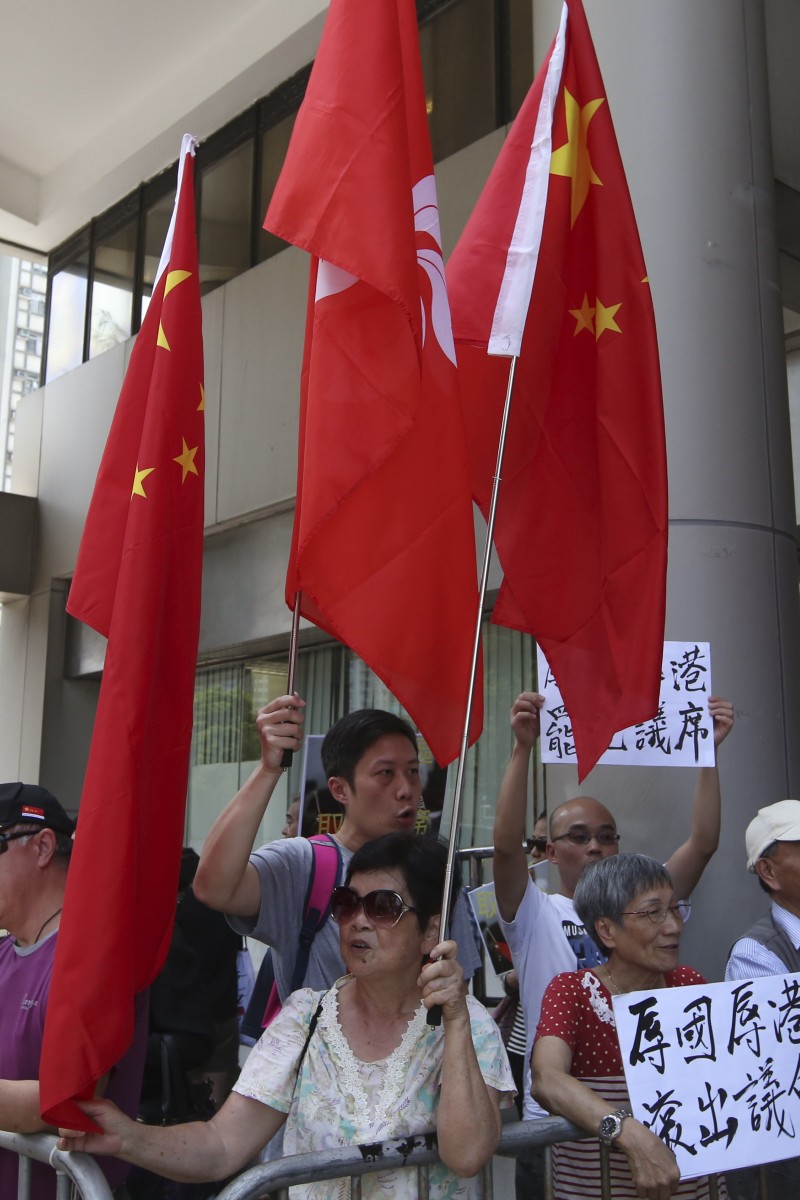
Reasons why it feels good to love the country you're a part of
It is wrong to dismiss this kind of intense patriotism as wholly irrational; people need to learn to use it for the good of their country
 An anti-localist protest in Hong Kong. What is good for the country may also be good for the public, so there is an incentive for people to rally behind a nation’s leaders.
An anti-localist protest in Hong Kong. What is good for the country may also be good for the public, so there is an incentive for people to rally behind a nation’s leaders. From white supremacists to Hong Kong’s separatists, nationalism has long been associated with the irrational hatred of outsiders and the irrational love for one’s homeland. The fact that no one can decide which country or ethnicity they truly belong to, critics say, makes loving your country as silly as loving the HKID card number that was randomly assigned to you by the system.
But despite the apparently nonsensical nature of nationalism, it has been used for many centuries as a tool for maintaining unity and encouraging collective action. This gives it some value in the common fight against imperialism and oppression.
The defining feature of nationalism and the reason for its success is its ability to attract support from all sections of society when faced with a real or perceived threat to the country and its population. Norwegian sociologist Johan Galtung believes that the fact that nationalism comes from a shared experience of trauma and glory enables people from all classes, faiths, and regions to finally cooperate in achieving a common goal.
Indeed, historian Shaun Breslin states that the victory of the Chinese Communist Party over the oppressive dictatorship of Jiang Jieshi (aka Chiang Kai-shek) in 1949 was the result of a surge in nationalism and anti-imperialist sentiments on the mainland. This was seen previously in the 1911 Wuchang Uprising and the 1919 May Fourth Movement. It was nationalism, rather than the communist ideology, that encouraged the Chinese to join forces against the Kuomintang.
The Chinese example highlights another valuable aspect of nationalism: the ability to bring national liberation. Similarly, Jomo Kenyatta’s Pan-African nationalist movement led Kenya to independence from Britain, contributing to the decolonisation of Africa after the second world war. Movements against European colonial powers and oppressive regimes in India, Vietnam, Cuba, Guatemala, and the Philippines (the list goes on) were also grounded in their appeal to national identity, and have given freedom to millions of people. When adopted by a group that has historically been suppressed by domestic or foreign powers, it seems that nationalism has a greater ability to bring positive change than inflict harm.
But even if these benefits are not realised and nationalist sentiment is misused by belligerent forces to mobilise people against other groups, it is still inappropriate to dismiss it as being wholly irrational. This is precisely because national and personal interests are often aligned; what is good for the country may also be good for the public, and hence there is an incentive for people to rally behind the nation’s leaders.
White nationalism in the United States, for example, which rejects all foreign influences, is closely connected to the false belief that immigrants are “stealing” jobs from “real” Americans. Economic concerns, rather than pure emotion, form the foundation of their nationalist ideology.
Although it is true that nationalism nowadays often manifests itself in racism and the subjugation of minority groups, it is important to recognise the benefits of that “great love for your own country” and learn how we can best harness it. Solutions to domestic issues often come from “locals”, and nationalism is the only way to galvanise public support.
